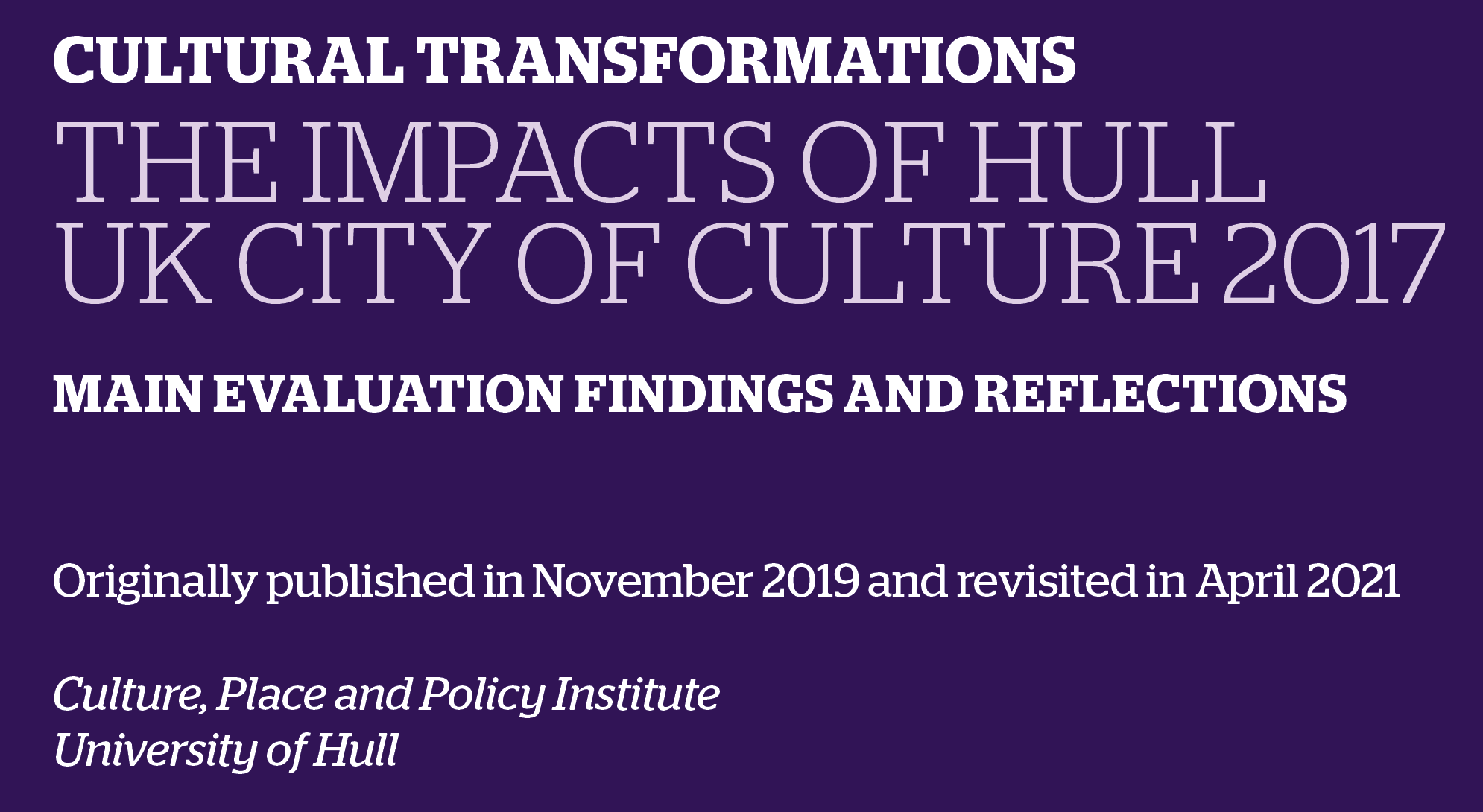This Final Evaluation Report completes the work undertaken by colleagues at the University of Hull’s Culture, Place and Policy Institute to evaluate the outcomes and immediate impacts of Hull UK City of Culture 2017. An earlier version was published in print in November 2019, to coincide with a conference that brought together academics, practitioners and policy-makers from Hull, the UK, and the rest of Europe. This conference and the report built on the preliminary evaluation, the results of which were published and discussed in March 2018, very soon after the end of Hull’s year as UK City of Culture. The present document, both in its original form and in this version, is essentially an update of the preliminary evaluation work, using later data and taking some account of the work done after the end of 2017 to build on the legacies of Hull UK City of Culture.
This revised version, completed in April 2021, is essentially a corrected and re-edited version of the November 2019 publication. We have not attempted to bring it further up to date, so it is essentially a summary of what was known at the end of 2019. Since then, of course, the Covid-19 pandemic has had a devastating short-term impact on the cultural sector; its medium and long term impacts are as yet unforeseeable. We have not attempted to take this into account. There is much hard thinking to do about the way in which the pandemic itself, and the move to digital that it has encouraged, will affect both the future delivery of cultural mega-events and the policies needed to build on their legacy. But that is a subject separate from this report.
Evaluation has multiple audiences. We intend our report to be an aid to anyone seeking to adopt evidence-based policies when developing and delivering cultural programmes and events. We hope it also offers value and insight to the cultural sector, and particularly to national or local policy-makers who aim to link culture to urban regeneration. But this report is also intended for those who work within the cultural sector. We hope that our findings can help to inform the strategy, ambitions and development of cultural organisations, as well as the work of independent creatives, who hope to connect to these wider cultural programmes and initiatives.
Finally, our findings are also aimed at academics and researchers, whose role – sometimes an uncomfortable one – is to provide a critical voice and perspective on these fields, to probe and to prod. But all of these groups share a common goal: to develop the best ways to build and strengthen a lively, engaging and challenging cultural environment, in Hull and elsewhere. We hope that this publication will support current and future initiatives in this important field.
Glenn Burgess
Professor of History, formerly Deputy Vice-Chancellor and strategic lead for the University of Hull’s Principal Partnership with Hull UK City of Culture 2017.

